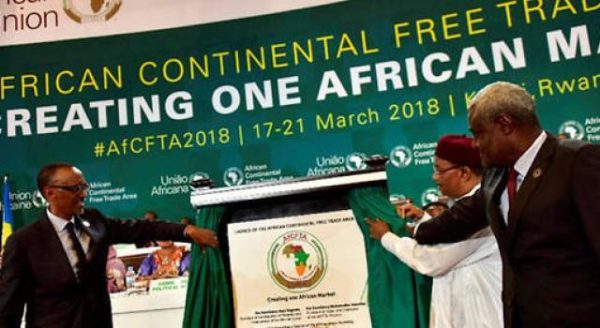By Rodrigue Fenelon Massala
Great Reporter
Special Envoy to Niamey
The member countries of the African Union (AU) have gathered since Sunday, July 7, 2019 in Niamey as part of the launch of the African Continental Free Trade Area (Zlec).
“This is the biggest historical event for the African continent since the creation of the OAU (Organization of African Unity) in 1963”, argues President Mahamadou Issoufou of Niger, one of the strong links in the promotion of the area free exchange.
The 32 heads of state and more than 100 ministers attending the summit will launch the free trade area, which will come into effect in 2020.
Zlec, which has about 1.2 billion people, will be the largest free trade area in the world. The market was to be active from 2020. “We must give a timetable so that everyone can play its role in the preparation of the (unique) market, so we recommended to the summit that the date be 1 July 2020”, explained AU Trade and Industry Commissioner Albert Muchanga.
Nigeria, which until then was still holding reserves, like its neighbor Benin signed the agreement on Sunday before the opening of the summit, to the applause of the other member states. According to the chairman of the AU commission, Moussa Faki Mahamat, to date 54 out of 55 signatories of the African space will be registered as the new market. Only Eritrea has not yet signed the agreement.
However, it is worth noting that only 27 out of 55 member states have already ratified the agreement establishing the Free Trade Area.
Zlec must promote trade within the continent and attract investors. The AU estimates that its implementation will increase by nearly 60% by 2022 intra-African trade, while critics of the project evoke the lack of complementarity of African economies and fear that cheap imports do not harm small agricultural and industrial producers.
In view of all the above, it should be noted that after this qualitative leap it would be imperative for the African states to move to the next stage, that of the free movement of people through the abolition of visas and all the barriers visible and invisible, which still hinder this process. The introduction of the extended African Union passport to citizens will in itself be an important step forward.
Apart from the Zlec, other files will be submitted for consideration by the leaders, including the issue of security in the Sahel-Saharan strip, the political process in Libya in Sudan and Algeria.



